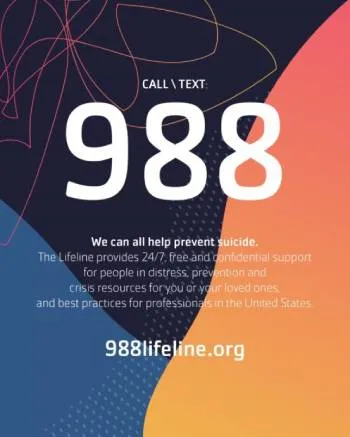Sexual Health
The information you are about to read is on the topic of sexual health. Should you decide to continue reading, please understand the purpose of providing this information is to equip the reader with pertinent information regarding sex and sexual health.
A 2020 World Health Organization (WHO) study showed a strong connection between teens struggling with mental health issues and sexually active teens. And while teens only account for one-fourth of the sexually active population, they also account for half of all sexually transmitted infections (STIs) each year.
STIs aren’t the only health-related consequences you can face for engaging in dangerous sexual activity, so it’s essential to understand the risks before you make a decision that could change your life.
Learn more about teen sexual health:
Youth Risk Behavior Survey Data Summary & Trends Report
Adolescent Mental Health and Risky Sexual Behavior
Peer Pressure
Are you feeling the pressure to have sex? Peer pressure is common among youth, but you don’t have to do anything you don’t want to do. Even though it may feel like everyone you know is having sex, don’t let that be your deciding factor.
Before you make a life-changing decision, ask yourself:
- Do your values align with this decision?
- Have you learned all the potential risks of having sex at a young age?
- Do you want to have sex? Or do you feel pressured to have sex because you think everyone else is?
- What do you want to gain from this experience?
- Are you ready to have a child if your contraceptives fail?
Abstinence
One of the easiest, safest, and best ways to prevent pregnancy, STDs, or STIs is to abstain from sexual activity. You may have some friends who are sexually active and some who are abstaining. If abstinence is your goal, consider spending more time with the friends who are abstaining. When you spend time with people who have the same goal, they can help you stay focused on achieving your goal.
Remaining a virgin or practicing abstinence can help ease your mind if you are unsure of someone you are romantically involved with. Often, sex can prevent us from noticing red flags or signs that the person you are involved with is not the right person for you.
Safe Sex
Before you decide to have sex, understand the associated risks. The decision to have sex is directly tied to your health, so there are important considerations.
First, you and your partner need to enthusiastically consent with a clear, verbal yes to the sexual experience. If you or your partner have any hesitation, you should choose not to have sex. And remember– any partner can withdraw consent at any point during the experience. So, if that happens, you should stop any sexual actions immediately.
Always practice safe sex. If either partner has engaged in any sexual behavior, you should get tested for STDs and STIs.
Important note: In order to legally consent to sexual intercourse, you have to be a certain age. The age of consent varies from state to state but is usually somewhere between 16 and 18 years old.
Sexually Transmitted Diseases and Infections (STD/STI)
Engaging in unsafe sex (sex using no prophylactics) increases your likelihood of receiving or passing a sexually transmitted disease or infection. You don’t need sex to pass certain STIs or STDs– they can pass through touching and kissing.
There are many different STIs and STDs, all with different treatment plans. Some have a cure, and some will affect you for the rest of your life. There are different treatment plans for different STIs and STDs. You should learn about and understand the risks associated with all sexually transmitted diseases and infections before you have sex.
If you plan on having sex, the most reliable way to prevent passing or receiving a sexually transmitted disease or infection is a latex condom. If you think you may have an STD or STI, contact your primary care physician as soon as possible for testing.
Teen Pregnancy
The best method for avoiding teen pregnancy is not to have sex. However, if you’ve made an informed decision to have sex, you can reduce the risk of teen pregnancy by using contraceptives.
Contraceptives, also known as birth control, aren’t limited to a monthly packet of pills. Contraceptives temporarily prevent pregnancy and include birth control pills, condoms, intrauterine devices (IUDs), spermicide, and more.
As a reminder, no contraceptives have a 100% pregnancy prevention rate. The only method that prevents 100% of pregnancies is abstinence.
Whether you used a contraceptive or not, contact a doctor, trusted adult, or teen pregnancy hotline if you think you may be pregnant.
Teen Pregnancy Hotline: 1-800-672-2296
